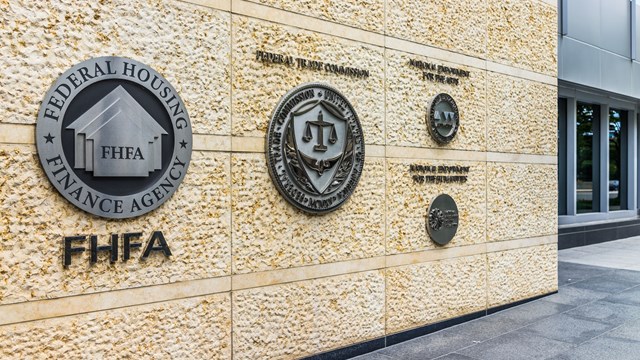New York, my old home state, presently litigates all co-op and condo disputes. Litigation, however, continually proves to be an expensive and time-consuming endeavor. Perhaps it’s time for New York to consider compulsory mediation-arbitration before initiating court proceedings. Mediation is negotiated peacemaking and arbitration is a decision favoring one side over the other. The main benefit to both is that they take place outside of a courtroom setting, saving precious money and time. From beginning to end, the process runs about five months. Parties don’t have to lose endless hours from work while they wait around in stuffy, crowded, run-down courtrooms waiting for their cases to be called. Parties and witnesses appear once at the scheduled hearing date and that’s it. Court cases–even here–can take a couple of years to conclude. That shopworn phrase of "Justice delayed is justice denied" doesn’t apply to arbitration cases.
Listen Up, New York
Currently, Nevada and Texas are the only states that compel compulsory mediation-arbitration before parties can seek court redress. Nevada’s statute (Nevada Revised Statutes, Chapter 38.360 to 38.360), under which I serve as a mediator-arbitrator, is four years old; the Texas statute is one year old.
Nevada’s statute states: "No civil action may be commenced in any court in this state upon a claim relating to the interpretation, application or enforcement of any covenants, conditions or restrictions applicable to residential property, or any bylaws, rules or regulations adopted by an association, or the procedures used for increasing, decreasing or imposing additional assessments on residential property unless the action has been submitted to mediation or arbitration." In other words, no one can commence a civil suit relating to residential issues without first going through mandated mediation or arbitration.
Co-op and condo owners in New York are familiar with the typical association disputes found nationwide. Like New York, disputes in Nevada involve violations of "house rules" (regulations) such as disturbing noises, pets, placement of plantings, renovations of units, and littering in the common areas. Board election results, sponsor-developer control issues, and board failure to respond to shareholder concerns are all part of the arbitration punch list.
Not on the list by long-standing Western law and tradition are co-op "flip taxes" condos’ "right of first refusal "to buy a member’s apartment, and the right of a co-op board to turn down a buyer for "no reason or any reason whatsoever," absent discrimination.
What’s Involved?
Mediation-arbitration starts when an aggrieved party, "Complainant" files via mail a "Complaint" form with a $50 filing fee to the "Ombudsman" Section of the State’s Real Estate Division. The Ombudsman and staff are charged with administering the mediation-arbitration program. Within 30 days after service, the "Respondent" replies on a "Response" form with a $50 filing fee. The parties are given a choice of choosing mediation, non-binding arbitration (which preserves the right to sue) or binding arbitration. If both sides don’t agree as to which process to use, non-binding arbitration is the process utilized.
The Ombudsman is usually successful in mediating party differences before formal mediation-arbitration takes place. If the Ombudsman fails to settle the matter, the case becomes formal mediation-arbitration and it is referred to an outside, certified impartial mediator-arbitrator.
Arbitrator fee schedules, and résumés are provided to the parties. Each side chips in one-half of the arbitrator’s hourly fee which generally average about $75 an hour. The parties choose an arbitrator from a random sampling of three names supplied by the Ombudsman. If the parties can’t agree, the Ombudsman appoints one from a revolving list. Most arbitrators are active or retired real estate industry professionals who must have at least five years of arbitration experience, and who have paid a modest fee to take a full day course on Nevada Association Law.
Nevada arbitrators operate on their own. They craft their own forms and hiring agreements, set time schedules, act as their own collection agents, and answer directly to the parties in all respects. They must certify to the participants that they have no business, personal, or family relationship with any of the parties, so that their impartiality is not an issue. Arbitrators are usually assigned one case at a time by the Ombudsman. This revolving system of choosing arbitrators minimizes favoritism, and effectively bars one from becoming a "professional arbitrator."
By law, the arbitrator has 90 days after receipt of the file to complete arbitration, and 30 days thereafter to file a decision. During the 90-day period, parties exchange documents, and witness names. This process, universally called "discovery," narrows the issues, and prevents unfair surprises at the hearing. Hearings are informal, and customarily take place at association premises or at another location convenient to the parties.
What’s the Bottom Line?
In New York legal fees are the centerpieces of co-op/condo litigation. A litigant’s ability to pay legal fees sometimes determines the outcome of a court case. Lack of money to fund litigation many times prevents otherwise worthy cases from being heard.
Homeowner association arbitration participants know that they will not be reimbursed their legal fees if they win because the statute, while allowing the costs of arbitration to be awarded to the victor, does "not include counsel fees." This encourages the parties to appear on their own without legal counsel. Lawyers do, however, appear in arbitration cases where disputes involve substantial sums of money, or where an important association issue is at stake.
The unsuccessful party in an arbitration case faces substantial legal and monetary obstacles if they want to overturn the arbitrator’s findings on appeal. To have the courts review the arbitrator’s decision the party must show that the "award was procured by corruption, fraud or other undue means," or that the aribitrator displayed various forms of misconduct including "exceeding their powers," "refusing to postpone the hearing upon sufficient cause shown," or "refusing to hear evidence material to the controversy."
The second obstacle is that the "loser"–and in rare instances an unsatisfied winner–has to "pay all costs and reasonable attorney’s fees incurred by the opposing party if he fails to obtain a more favorable award or judgment than that which was obtained in the initial arbitration." These two obstacles generally stop the numerous rounds of technical and substantive appeals so common in New York co-op and condo wars.
In Nevada, a homeowner, or an association, gets the right to have a grievance heard for $50. For about another $37.50 an hour, each side gets a real estate industry arbitrator to settle or decide the dispute. Total cost to each side runs in the mid-hundreds according to latest statistics. By contrast, co-op and condo litigation in New York City usually runs in the thousands. Based on my past personal experience as a New York co-op and condo attorney, a deposit for legal fees to start a court case in the Big Apple exceeds the entire cost of arbitration in Nevada!
Nevada’s mediation-arbitration procedure has received rave reviews from its citizenry. Association disputants have their causes heard and decided for relatively modest fees. The economic strength of a particular party rarely controls the final outcome in arbitration. Economic strength of a party does however play a substantial role in the final outcome of litigation. All in all, it is a worthy topic of discussion for a way to combat the overburdened and burdening court system. It’s up to You–New York, New York"
Mr. Apfelberg is a former New York coop-condo lawyer, who resides in Nevada, where he serves as mediator-arbitrator in homeowner association disputes.







3 Comments
Leave a Comment